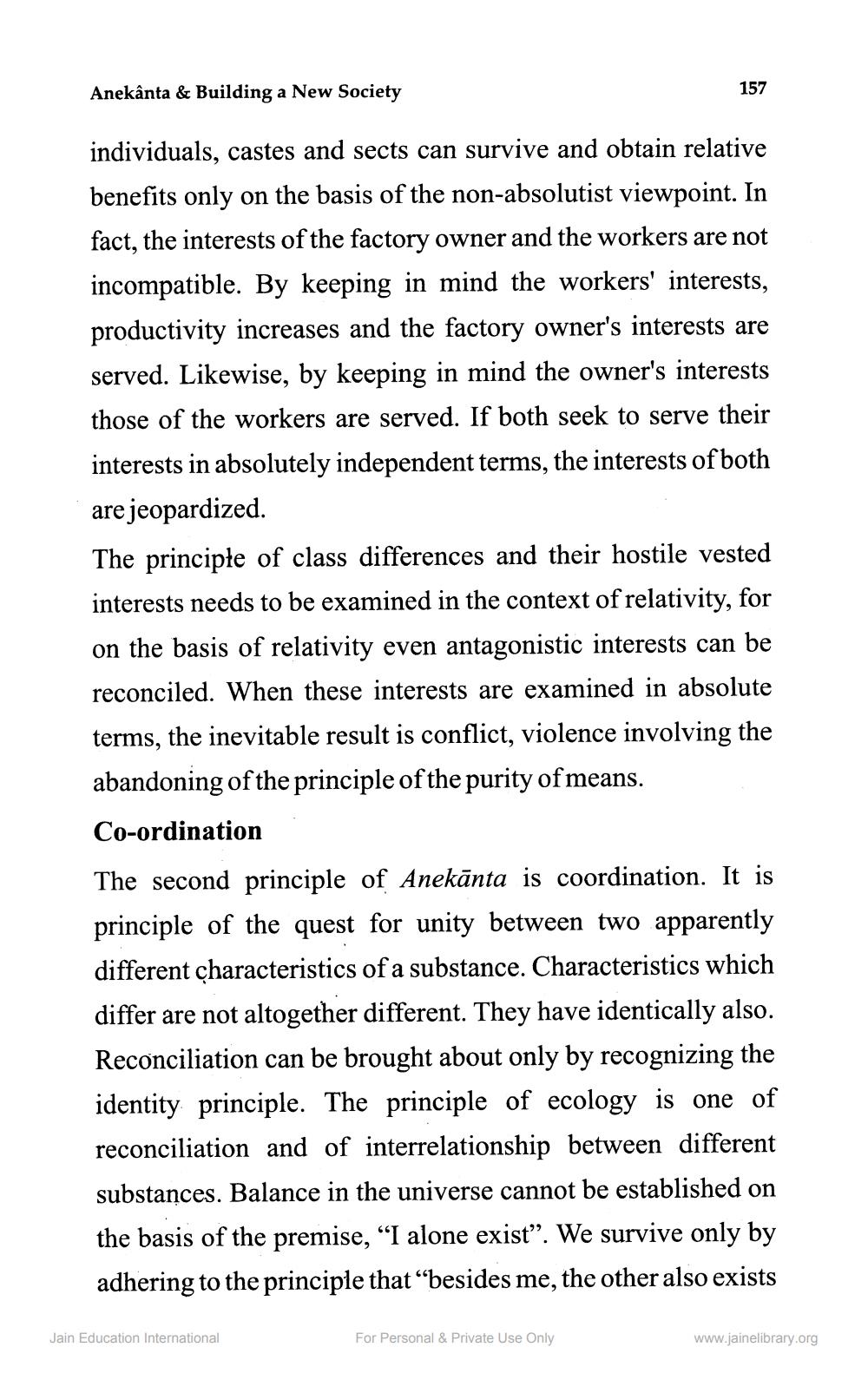________________
Anekânta & Building a New Society
157
individuals, castes and sects can survive and obtain relative benefits only on the basis of the non-absolutist viewpoint. In fact, the interests of the factory owner and the workers are not incompatible. By keeping in mind the workers' interests, productivity increases and the factory owner's interests are served. Likewise, by keeping in mind the owner's interests those of the workers are served. If both seek to serve their interests in absolutely independent terms, the interests of both are jeopardized. The principle of class differences and their hostile vested interests needs to be examined in the context of relativity, for on the basis of relativity even antagonistic interests can be reconciled. When these interests are examined in absolute terms, the inevitable result is conflict, violence involving the abandoning of the principle of the purity of means. Co-ordination The second principle of Anekānta is coordination. It is principle of the quest for unity between two apparently different characteristics of a substance. Characteristics which differ are not altogether different. They have identically also. Reconciliation can be brought about only by recognizing the identity principle. The principle of ecology is one of reconciliation and of interrelationship between different substances. Balance in the universe cannot be established on the basis of the premise, “I alone exist”. We survive only by adhering to the principle that “besides me, the other also exists
Jain Education International
For Personal & Private Use Only
www.jainelibrary.org




